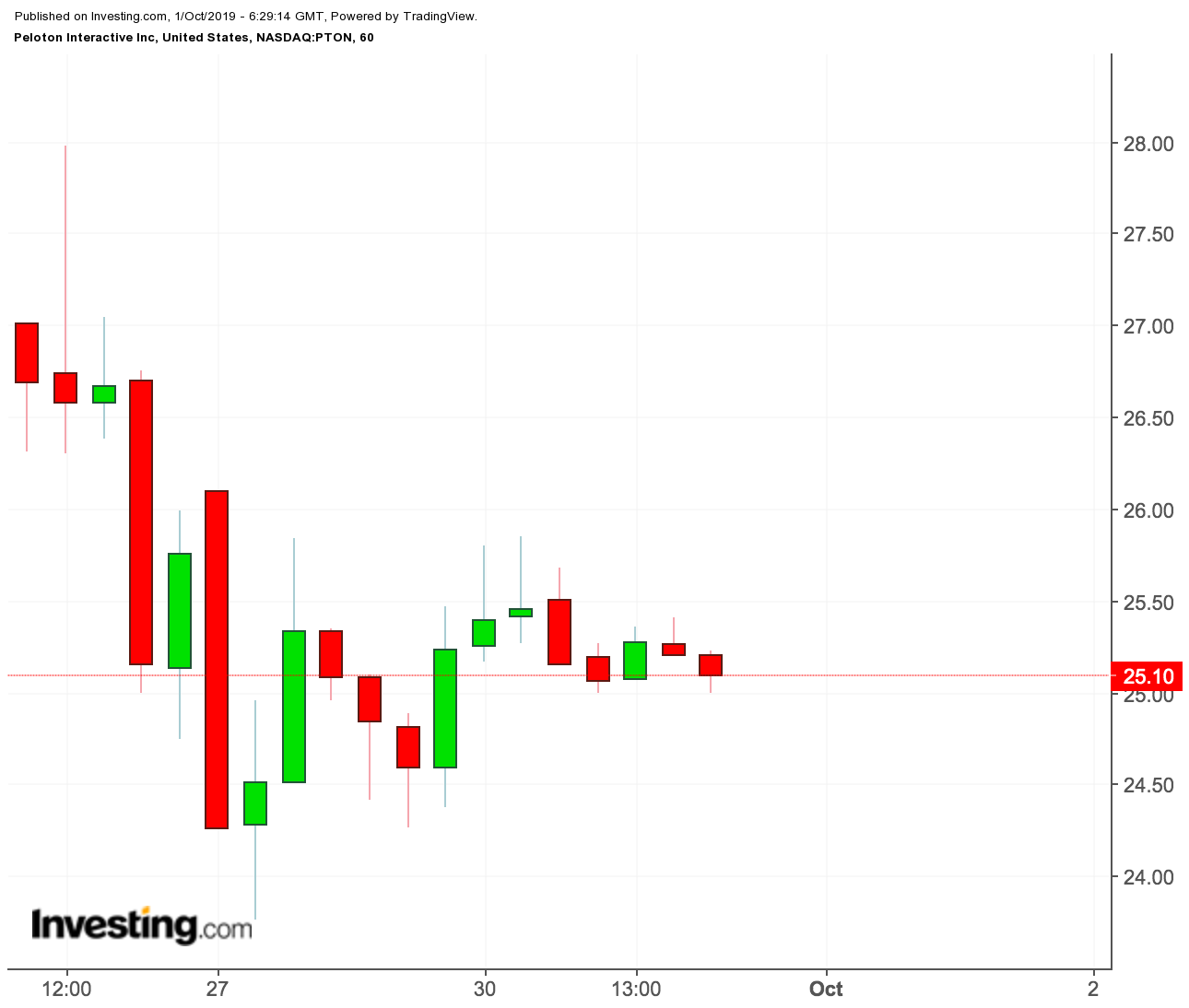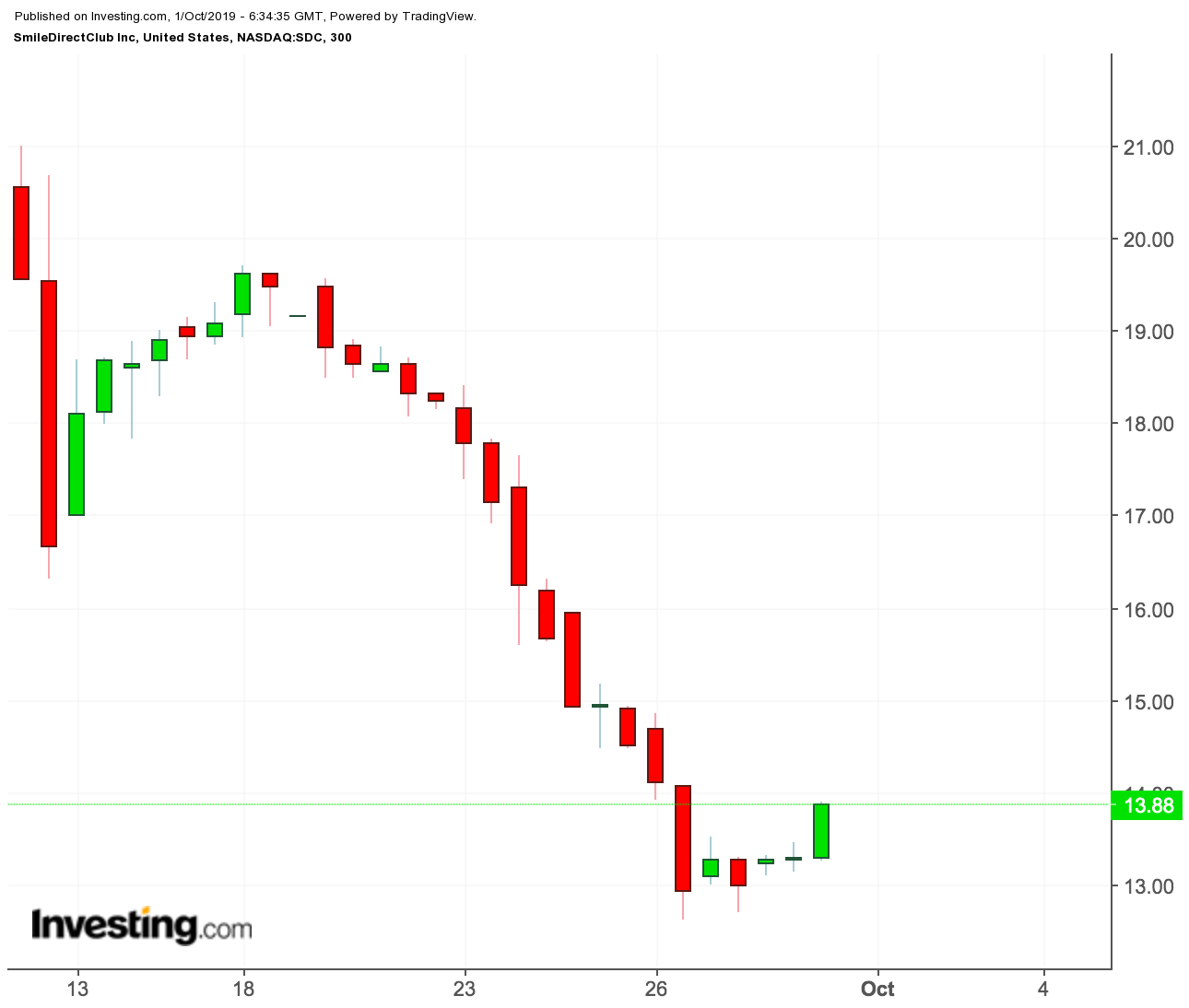It’s been quite a tumultuous year for new listings on the market. While some of the most anticipated IPOs— Uber Technologies Inc (NYSE:UBER) and LYFT Inc (NASDAQ:LYFT)—failed to live up to expectations, other little-known entrants, such as Beyond Meat Inc (NASDAQ:BYND) and Zoom Technologies Inc (OTC:ZOOM), became investors’ new darlings.
The past month, however, has offered the clearest signal yet to issuers that the appetite for new listings is drying up fast, especially for companies that have yet to produce profits.
Below, we discuss three recent IPOs that proved some of the biggest flops of the year, highlighting the uncertainty about the economy and markets that’s pushing investors to the sidelines.
1. Peloton Interactive
The New York-based Peloton Interactive Inc (NASDAQ:PTON), known for its high-end exercise bikes, is among those names that failed to impress investors in the public markets.
Peloton, which was able to raise more than $1.16 billion in its IPO on Sept. 25, is trading almost 15% down from its listing price of $29 a share, becoming one of the largest flops among the companies that raised at least $1 billion in the past 10 years.
With more than 1.4 million members, Peloton describes itself as the “largest interactive fitness platform in the world.” It also has an app that sells its exercise programs to users who don’t own its hardware but are willing to pay a monthly subscription fee for the classes. The company sells its basic “connected fitness” subscription for $39 a month and bikes starting at about $2,000.
While the company has shown a good trajectory of rising sales, it lost $196 million on sales of $915 million during the 12 months ended June 30, according to filings. That compared with a loss of $48 million on $435 million in sales during the same period a year earlier.
2. SmileDirectClub
SmileDirectClub (NASDAQ:SDC), the maker of alternatives to dental braces, raised $1.35 billion last month in this year’s fifth-largest IPO, but its fate was no different than other big flops.
Its stock, trading at $13.21 on Monday, is down more than 40% from its IPO price—a public market reception that made investors surprised as the company’s business model looks quite attractive.

SmileDirectClub ships clear aligners directly to customers, whose progress is monitored remotely by licensed dentists or orthodontists. Customers either go to a so-called SmileShop and get a free 3-D image taken of their teeth or buy a kit online to make an impression of their teeth to mail to SmileDirectClub. A dental professional then reviews the information and prescribes aligners if appropriate.
The company says the average treatment plan is around six months, significantly shorter than the 12 to 24 months a traditional course of braces would take. SmileDirectClub claims that its treatment costs less than 60% than any traditional orthodontic braces procedure.
SmileDirectClub made $423.2 million in sales last year, posting a 190% increase from the year before. But to generate those sales, it had to spend a lot, with marketing and selling expenses growing more than threefold to $213.1 million in 2018 from $64.2 million in 2017. These expenses more than doubled its losses to about $75 million in 2018 from about $33 million a year ago.
3. WeWork
The New York-based WeWork (NYSE:WEWK), which leases and owns spaces in office buildings and then typically rents desks to customers ranging from startups to corporations, officially withdrew its IPO bid yesterday after it failed to generate the support it needed to list the company.
The path to becoming a publicly traded company was so tumultuous for WeWork that it cost its co-founder Adam Neumann and chief executive officer his job: he stepped down last week after the board raised concerns about the corporate governance and the aggressive growth of the money-losing startup.
The WeWork debacle in the public market also shows a stark difference in how investors value a firm that has got a huge backing from private investors. WeWork, for example, has raised more than $12 billion since its founding nine years ago, but never turned a profit.
The company had been targeting a share sale of about $3.5 billion in September, according to media reports, but its prospectus failed to present a case where investors could see a clear path to profitability.
